30 Music Legends Everyone Thinks Are American—But They’re Not
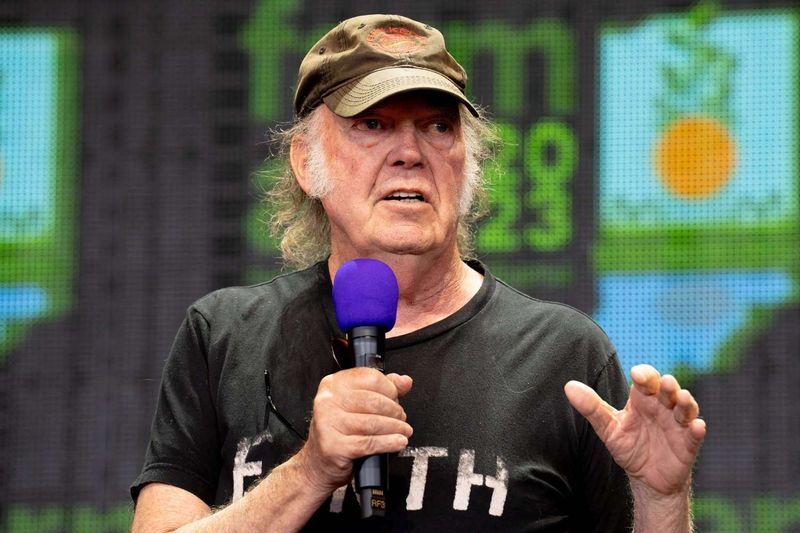
There’s something funny about the way certain musicians get absorbed into American pop culture. Their songs dominate U.S. radio, their faces appear on magazine covers, and before you know it, everyone simply assumes they must be American too.
But the truth? A surprising number of global superstars built their careers far from American soil—and their backgrounds are even more interesting than you might think.
These artists didn’t just shape music in their home countries; they reshaped the American charts without ever needing a U.S. birth certificate.
Their influences, upbringings, and worldviews add an international flair to genres that many fans believe were purely American-made. And honestly? That mix is part of what made them so unforgettable.
1. Freddie Mercury
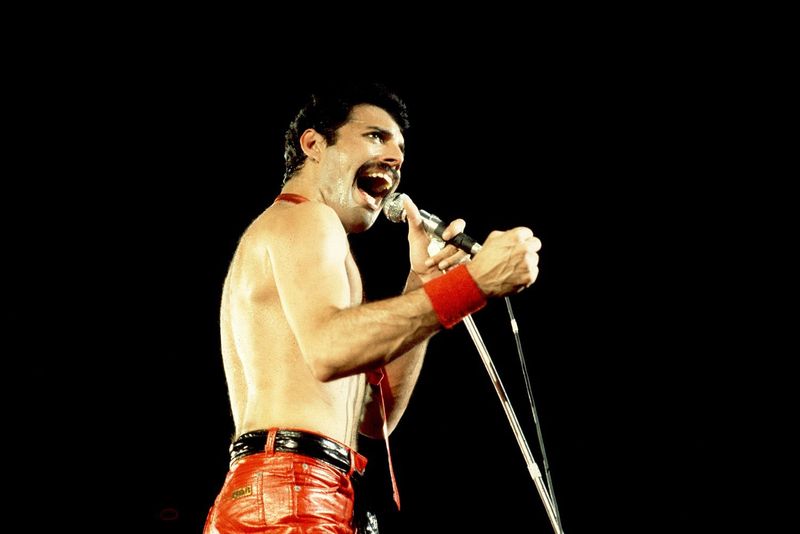
Few performers in music history had the electrifying presence that Freddie Mercury brought to the stage, and many fans assume someone with that level of cultural impact had to be American. But Mercury’s story began thousands of miles away—from his birth in Zanzibar to his upbringing in India, and eventually to his move to London as a teenager.
His multicultural background shaped everything about him: his creativity, his flair, his sense of drama, and his refusal to fit neatly into any category. You can hear those influences in Queen’s catalog, which jumps effortlessly from rock to opera to disco without apology.
By the time Queen conquered American stadiums, Mercury had already mastered the art of blending global influences in a way that felt both familiar and revolutionary. It’s no wonder people mistakenly lump him in with American rock icons—his music simply transcended borders.
2. AC/DC (Angus & Malcolm Young)
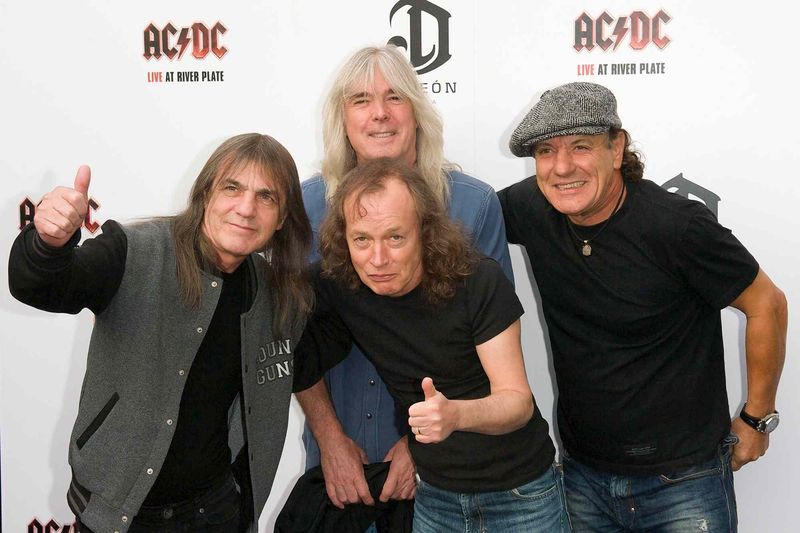
Rock fans across the U.S. have blasted AC/DC for decades, and it’s easy to assume they must be an American-born hard rock staple. But the Young brothers were actually born in Scotland before their family relocated to Australia when they were young. That mix of British grit and Aussie boldness became a huge part of AC/DC’s identity.
The band formed in Sydney and carved out their aggressive, no-nonsense rock sound on Australian stages long before their music ever reached American radios. Their global perspective made them stand out—loud, fast, and unapologetically raw in a way that felt different from U.S.-born rock groups.
Once they hit the American market, listeners embraced them so hard that the band practically felt like part of the national soundtrack. But their roots? Entirely non-American—and that’s part of what made their music so distinct.
3. Bryan Adams
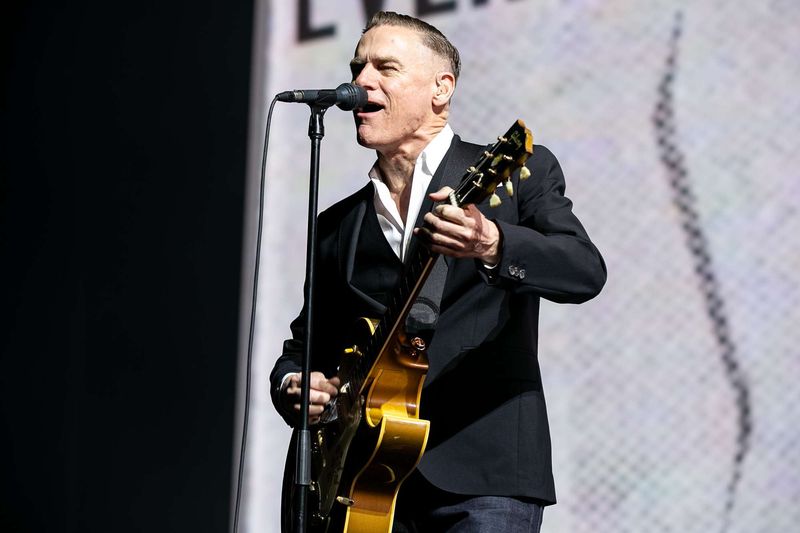
You don’t become the voice behind “Summer of ’69” and avoid getting mistaken as an American. Bryan Adams is one of those artists who sounds like he rolled straight out of a U.S. heartland rock fantasy, but he’s actually Canadian through and through. Born in Kingston, Ontario, Adams built his career far north of the border.
His raspy voice, big guitar riffs, and heartfelt lyrics resonated so strongly with American audiences that the line between Canadian and American rock blurred. His music videos, radio dominance, and stadium tours cemented him as a North American icon—not just a Canadian one.
Even after decades of fame, plenty of listeners still get surprised when they learn he isn’t American. Adams simply captured the spirit of a time and place that felt universal, proving you don’t need a U.S. origin to deliver a quintessentially “American-sounding” hit.
4. Celine Dion

With her massive Las Vegas residencies, soaring ballads, and American pop culture presence, Celine Dion practically feels like an American superstar. But the powerhouse singer was actually born in Charlemagne, Quebec, and didn’t grow up speaking a single word of English. Her rise began in French-language music long before she crossed into the U.S. spotlight.
Her transition to English music was one of the most successful global crossovers ever recorded. That ability to adapt, connect, and perform with unbelievable emotional range is exactly why fans all over the world—including the U.S.—claimed her as their own.
Today, many casual listeners are shocked to learn she isn’t American despite spending so much of her career performing on American stages. But her deep Canadian roots are part of what makes her unique, proving that international artists can dominate the American scene without ever being born there.
5. Neil Young
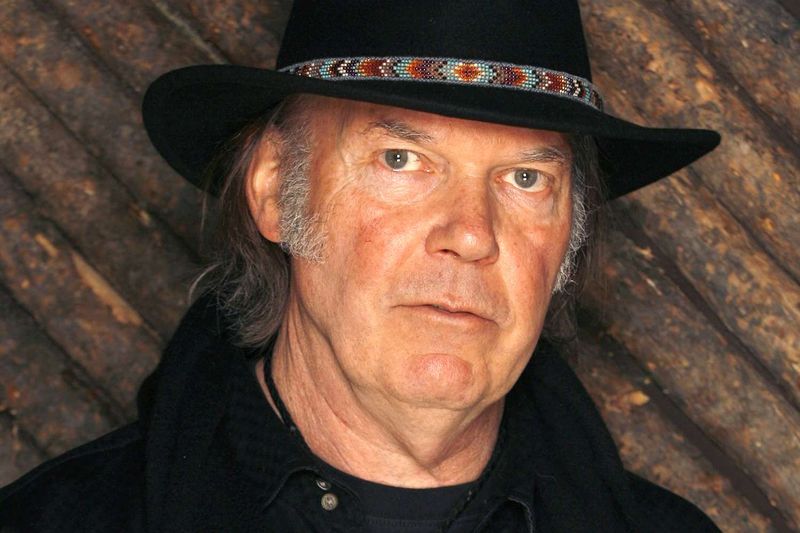
Rock, folk, grunge—Neil Young influenced them all, and his decades-long presence in American music culture often makes people forget he’s not actually American. Born in Toronto, he grew up exploring the landscapes and folk traditions of Canada before eventually heading south to join the California music scene.
That outsider perspective shaped his songwriting in powerful ways. His lyrics often feel like a blend of wanderer’s poetry and sharp cultural commentary, the kind you get from someone who’s observing America with both admiration and distance. It’s part of what gives his music its emotional edge.
Despite becoming one of the most influential musicians in U.S. history, Young has always kept a strong connection to his Canadian identity. His career is proof that you don’t need to be American to shape American music—you just need the right mix of talent, honesty, and unmistakable voice.
6. Shania Twain

Country music fans often assume Shania Twain must be American, especially since she’s one of the bestselling country artists of all time. But she actually grew up in Ontario, Canada, far from the honky-tonks and Nashville studios people associate with the genre. Her early life was shaped by rugged landscapes, tough family circumstances, and a deep love of storytelling.
Those influences helped her craft the relatable, energetic style that launched her into superstardom. When she eventually made her impact on Nashville, she brought a fresh, boundary-pushing flavor that felt different from the traditional country sound dominating the scene. Her mix of pop hooks and country attitude changed the genre forever.
Her Canadian identity remains a huge part of her story, even if American fans sometimes forget it. She didn’t just enter the U.S. country scene—she reinvented it, proving that iconic Southern-sounding music can come from much farther north.
7. The Weeknd

With his moody R&B sound and total takeover of American charts, The Weeknd seems like the kind of artist who must’ve come straight from Los Angeles or New York. But he was actually born and raised in Toronto, the same city that helped nurture many of today’s biggest global stars.
His early work came from a place of deep introspection and urban grit, shaped by a community of creatives who pushed boundaries without worrying about fitting into mainstream American expectations. That outsider energy became part of his signature—dark production, haunting vocals, and emotional storytelling that breaks genre rules.
Once he exploded in the U.S., people quickly embraced him as a major figure in American pop culture. But that Canadian influence, combined with his Ethiopian heritage, is at the heart of his artistic identity. It’s what makes his music feel both familiar and completely otherworldly.
8. Drake

Rap fans sometimes forget that one of the most influential hip-hop artists of the 21st century wasn’t born anywhere near the U.S. Drake is a Toronto native who rose from Canadian TV to global music superstardom. His city shaped him—its multicultural neighborhoods, its cold winters, and its blend of global influences all show up in his sound.
When he broke into the American market, he didn’t try to mimic the established hip-hop regions. Instead, he brought his own moodier, melodic style, redefining what mainstream rap could sound like. His vulnerability, emotional honesty, and catchy hooks stood out in a genre often dominated by tougher personas.
Even today, some casual listeners are surprised to learn that the man behind countless chart-topping singles isn’t American. But Drake’s success proves something powerful: the hip-hop world is bigger, broader, and more international than many people once believed.
9. Justin Bieber

Few artists have had a more intense rise to fame than Justin Bieber, and because he became a teen idol in the U.S., many people just assume he’s American. But he grew up in Stratford, Ontario, a small Canadian town where he learned to sing, drum, and perform long before the spotlight ever found him.
His discovery on YouTube launched him into instant American pop culture, making him a household name practically overnight. That early exposure, combined with his smooth vocals and boy-next-door persona, made U.S. fans feel like he was one of their own. His music quickly became part of the American pop soundtrack.
But his Canadian upbringing is a huge part of his narrative—from his humility in interviews to the themes of family and youth woven through his early work. His journey from small-town Canada to global icon remains one of the most remarkable success stories in modern music.
10. Kylie Minogue

American listeners often assume Kylie Minogue is one of their own because her music has been a club staple in the U.S. for decades. But she was born and raised in Melbourne, Australia, where she first gained fame as a TV actress before making her move into the pop world. Her early career was shaped by the vibrant Australian music scene, not the American one.
When she eventually crossed into international markets, her sound brought something fresh and undeniably fun—bright pop beats, infectious hooks, and a charismatic stage presence that made people want to dance. Even when American radio wasn’t giving her the same love as Europe, she still built a passionate U.S. fanbase.
Her Australian identity remains core to who she is, even if casual listeners sometimes forget it. Minogue’s long-lasting success shows that pop royalty can come from anywhere—and sometimes the world just needs a little Aussie sparkle.
11. Keith Urban
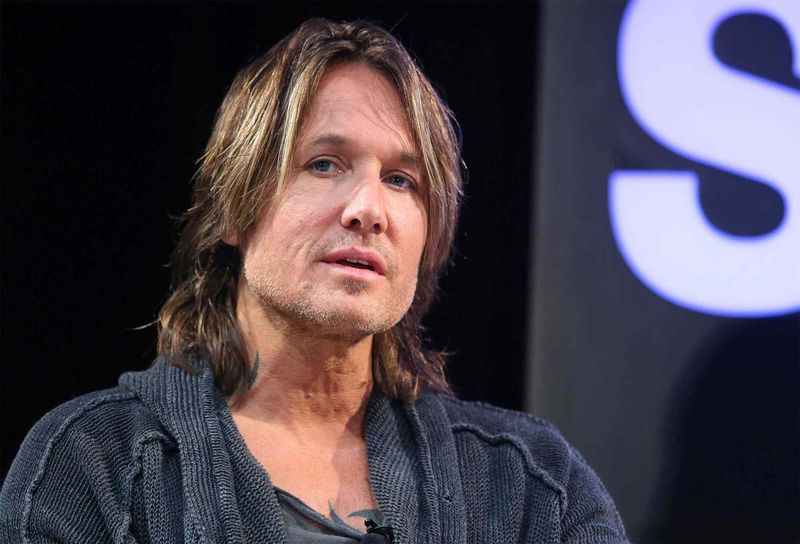
Country fans in the U.S. often assume Keith Urban is American because he’s become such a familiar face in Nashville. But he was actually born in Whangarei, New Zealand, and raised in Australia, where he learned guitar and fell in love with country music long before he ever stepped foot in the States.
His early influences were a mix of American country legends and the unique sounds of the Australian music scene. That combination helped him develop a style that felt familiar but also refreshingly different—smooth vocals, guitar-driven melodies, and a touch of pop polish that made him stand out immediately.
Once he made his way to Nashville, he blended right in while also bringing something new to the genre. His success is a reminder that country music’s heart may be American, but its soul can come from anywhere in the world.
12. Gotye

Most people remember Gotye for his haunting megahit “Somebody That I Used to Know,” and it’s easy to slot him into American indie-pop culture. But he was born in Belgium before his family moved to Australia when he was just a child. That multicultural background heavily influenced his artistic approach.
He grew up experimenting with instruments, sounds, and recording techniques, creating music that didn’t follow mainstream American formulas. Instead, he leaned into eclectic influences, blending world music, alternative pop, and experimental production in ways that gave his songs a distinctive edge.
When he finally broke through internationally, the U.S. embraced him wholeheartedly—even though his success was rooted in a creative style shaped far outside the American landscape. His global hit served as a reminder that innovation often comes from musicians who aren’t afraid to draw from multiple cultures at once.
13. Rick Astley
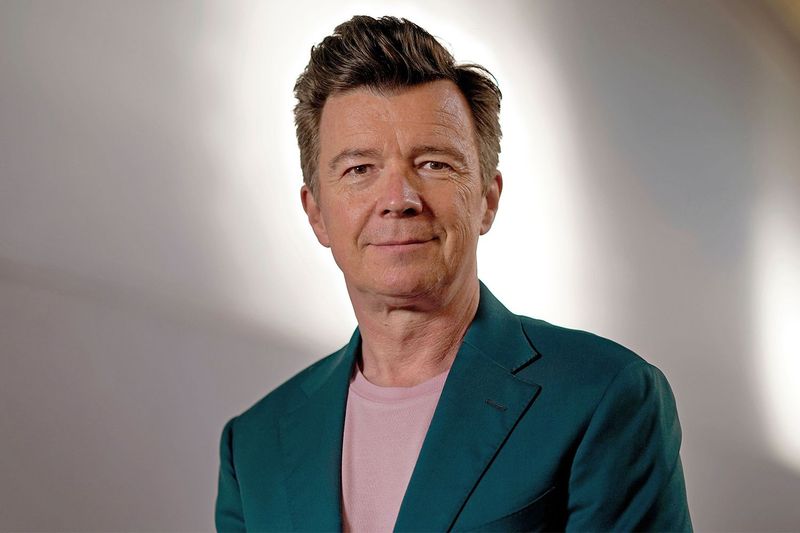
Pop culture has permanently etched Rick Astley into American memory thanks to the whole Rickroll phenomenon, but he’s actually from Lancashire, England. Long before the internet turned him into a meme, he was crafting smooth pop hits under the guidance of British producers who helped shape the ‘80s sound.
His deep, soulful voice surprised many listeners who assumed he was an American R&B singer. That vocal power, combined with catchy songwriting, created hits that fit seamlessly into American radio playlists during the late ‘80s.
When the internet catapulted him back into the spotlight decades later, younger audiences naturally assumed he was American too—after all, his meme status became part of American digital culture. But Astley’s entire life and career are rooted firmly in the UK, proving that the most unexpected icons often come from across the ocean.
14. Dua Lipa

With her glamorous persona, chart-topping hits, and ties to American pop stars, Dua Lipa is often mistaken for being American. But she was born in London to Albanian parents and spent part of her childhood living in Kosovo before returning to the UK to pursue music.
Those international roots shaped her sound, giving her a blend of European pop sensibilities, dance-floor energy, and bold artistic confidence. Her music carries an edge that feels both modern and global—something that doesn’t quite fit into any one country’s pop style.
Once she broke into the U.S. market, she quickly became a staple on American radio, award shows, and streaming charts. But behind the glitz and glamour is a uniquely global story rooted in multicultural experiences that shaped her identity long before American fame ever arrived.
15. Mick Jagger
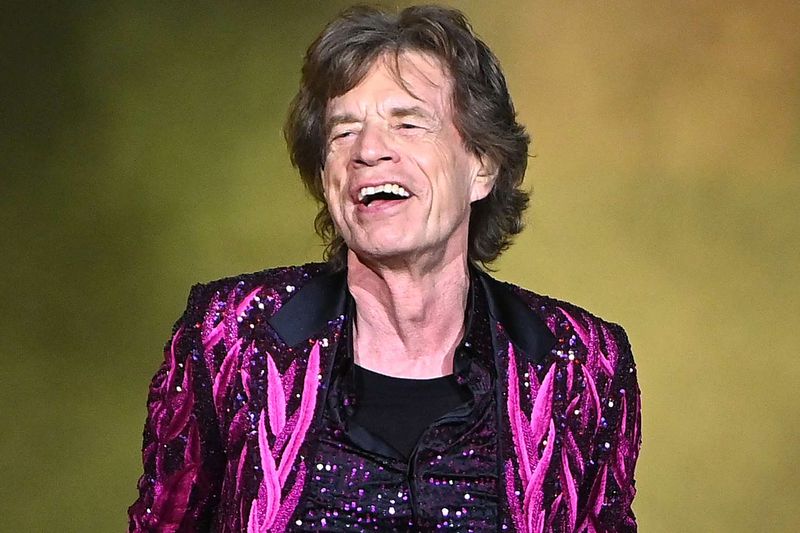
It’s hard not to associate Mick Jagger with American rock culture, especially since The Rolling Stones helped shape the American music scene for decades. But Jagger was born in Dartford, England, and grew up soaking in British rhythm and blues influences long before he ever performed in the U.S.
His fascination with American blues artists helped launch the Stones, but he interpreted that genre through a uniquely British lens. That combination—American roots, British swagger—became the foundation of one of the most iconic bands in history.
The Stones eventually became so deeply tied to American culture that many people simply assumed they were U.S.-born. But Jagger’s distinctive accent, stage presence, and artistic choices are the product of a musician who pulled inspiration from across the Atlantic while proudly remaining British.
16. Ozzy Osbourne
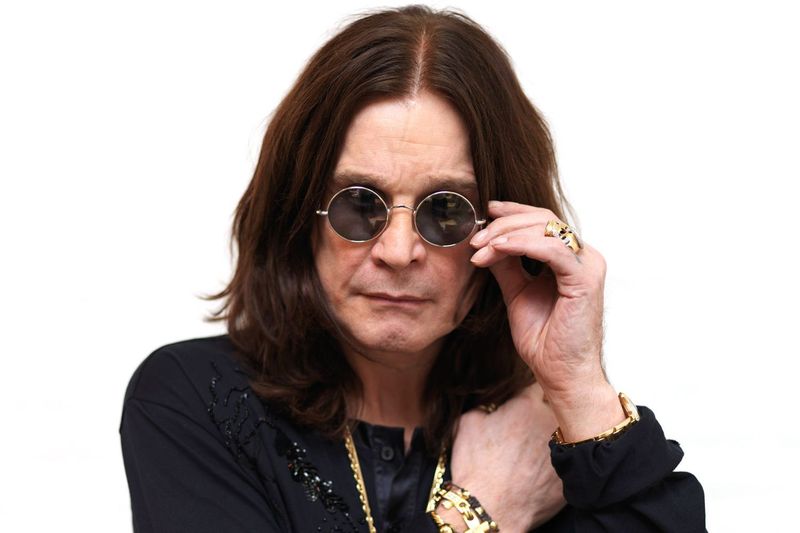
Heavy metal fans sometimes forget that Ozzy Osbourne’s chaotic charm didn’t come from American rock culture at all. He was born in Birmingham, England, a place whose gritty industrial backdrop heavily influenced the early Black Sabbath sound. That environment shaped his rebellious attitude long before he stepped onto a U.S. stage.
His career took off as he helped pioneer metal, bringing a darker, heavier style that didn’t fit neatly into the American rock scene at the time. His voice, theatrics, and unpredictable stage presence made him stand out in ways that fans couldn’t ignore. The U.S. eventually embraced him wholeheartedly, turning him into a long-lasting cultural icon.
Between his music career and his unforgettable reality TV fame, many casual viewers assume he must be American. But everything about his persona—from his humor to his accent—remains deeply, unmistakably British.
17. Sting
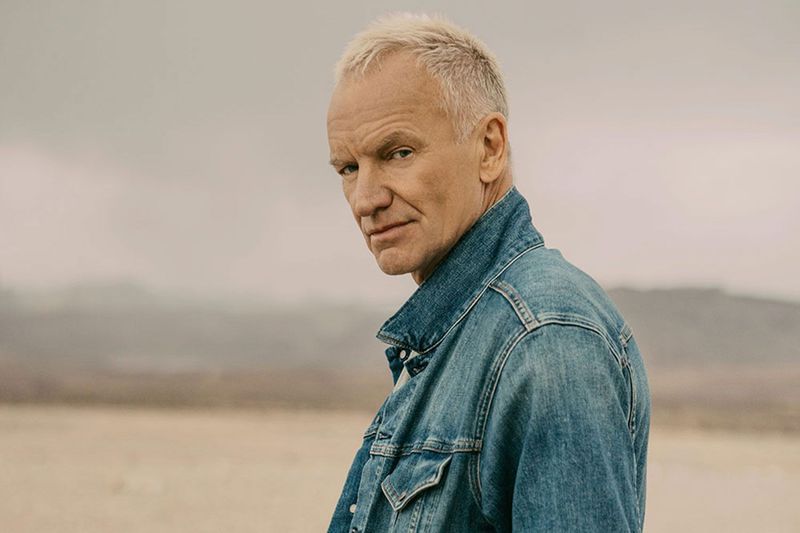
American audiences have been singing along to Sting’s songs for decades, so it’s understandable that some people assume he’s from the U.S. But he grew up in Wallsend, England, where he developed an early love for literature, songwriting, and social commentary that later shaped his work with The Police.
His music blended British punk energy with global influences, giving him a sound that didn’t quite match the American mainstream. When he transitioned into a solo career, he embraced world music, jazz, and political themes—choices that reflected a worldview shaped far outside American borders.
Even though he’s become a household name in the U.S., Sting’s European identity continues to influence his music and public work. His thoughtful, poetic approach stands as a reminder that great artistry often comes from looking at the world from a different angle.
18. Phil Collins
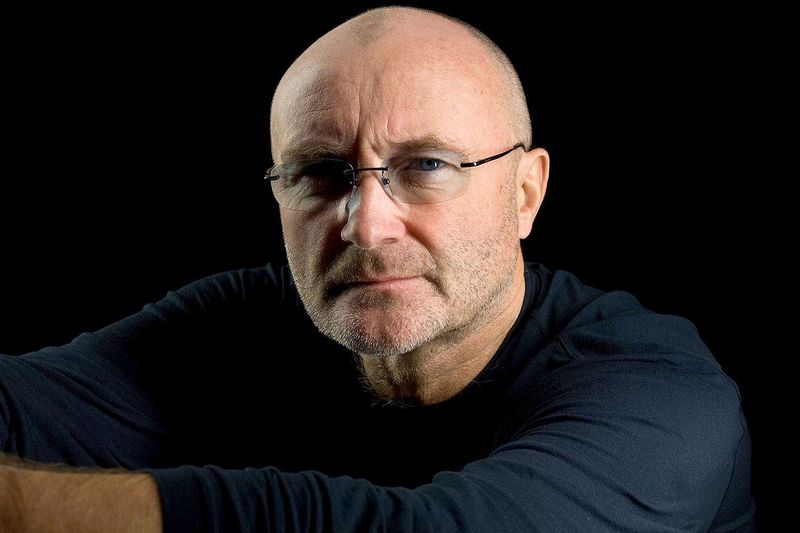
Listeners often forget Phil Collins isn’t American, especially since his solo hits dominated U.S. charts and his soundtrack work became the background music for entire generations. But Collins was born in London and developed his musical chops in England’s vibrant rock scene long before American fame found him.
His career took off as the drummer—and eventually the frontman—of Genesis, a band that blended British prog-rock complexity with mainstream appeal. That combination gave Collins the tools he needed to launch a wildly successful solo career filled with emotional ballads and bold pop anthems.
By the time he became a fixture on American radio and movie soundtracks, people simply assumed he was one of their own. Still, his storytelling style and charming British sensibilities are woven into every song he’s ever performed.
19. David Bowie
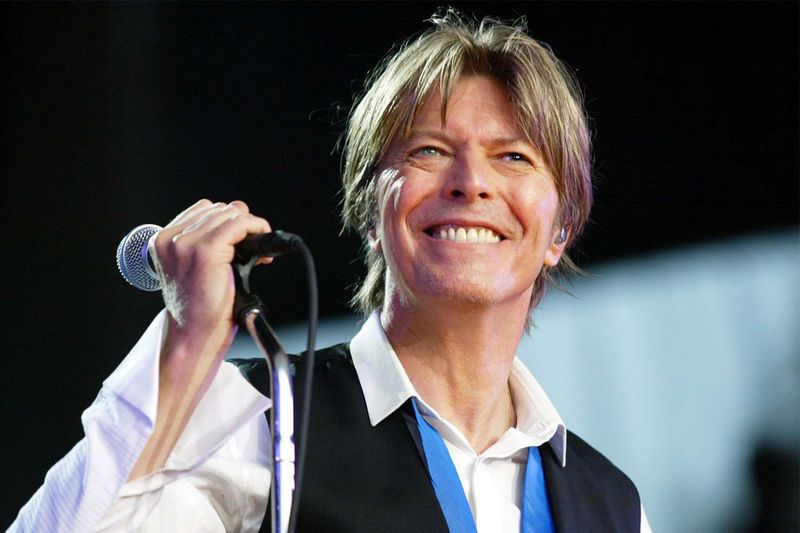
Bowie’s influence on American pop culture is so massive that it sometimes erases the fact he was entirely British. Born in Brixton and raised in London, he built his career in England’s experimental, fashion-forward music scene—an environment that encouraged him to reinvent himself endlessly.
His theatrical approach, futuristic imagination, and willingness to bend genres came from growing up in a place that celebrated artistic risk. When he entered the American market, audiences were captivated by his bold costumes, surprising personas, and haunting vocals.
Even though he eventually became a global icon, Bowie’s unique style always carried a distinctly British flavor. His fearlessness, wit, and avant-garde approach weren’t shaped by American culture—they shaped American culture.
20. Adele

Adele’s voice is so powerful and soulful that many American listeners assume she grew up in the South or came from a long line of American gospel singers. But she was born in London and discovered her love for music through British artists and local creative spaces that encouraged her to embrace emotional honesty.
Her rise to fame came from heartfelt storytelling, strong vocals, and relatable themes that resonated strongly with U.S. audiences. The American market embraced her so quickly that her songs became staples on every major radio station—and her albums turned into cultural moments.
Despite her massive success in the U.S., Adele’s down-to-earth personality, humor, and accent remind everyone that she’s proudly British. Her music may feel universal, but her story is rooted firmly in her UK upbringing.
21. Sam Smith
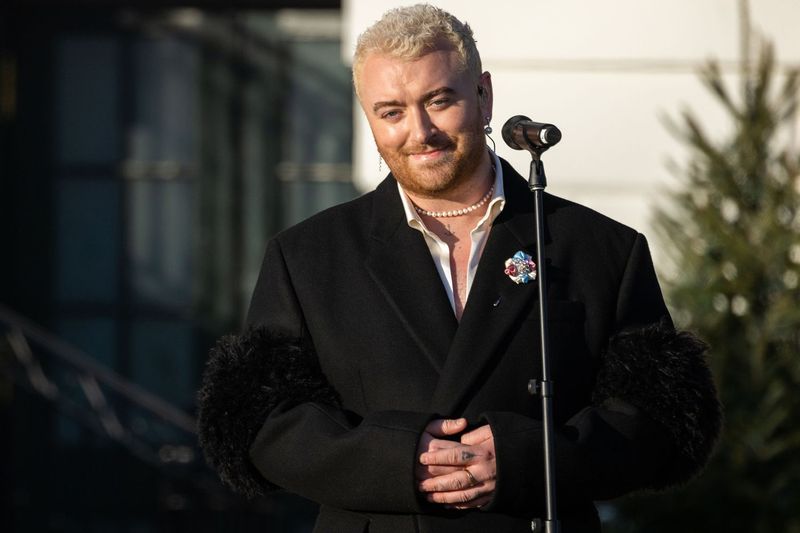
Many listeners assume Sam Smith is American because their soulful voice and emotional ballads fit so naturally into U.S. pop and R&B playlists. But Smith was born in London and grew up immersed in the UK music scene, where they developed the vocal style and vulnerability that would later define their global career.
Their rise began with a series of collaborations that showcased their raw emotional depth and impressive range. That early success quickly caught the attention of American audiences, who embraced their heartfelt lyrics and stirring performances as if they’d always been part of the U.S. music landscape.
Although Smith has become a staple in American pop culture, their songwriting reflects distinctly British influences—poetic phrasing, introspective themes, and a quiet honesty that stands out in today’s music world. Their identity remains a blend of global experiences rooted in a UK foundation.
22. Sinead O’Connor
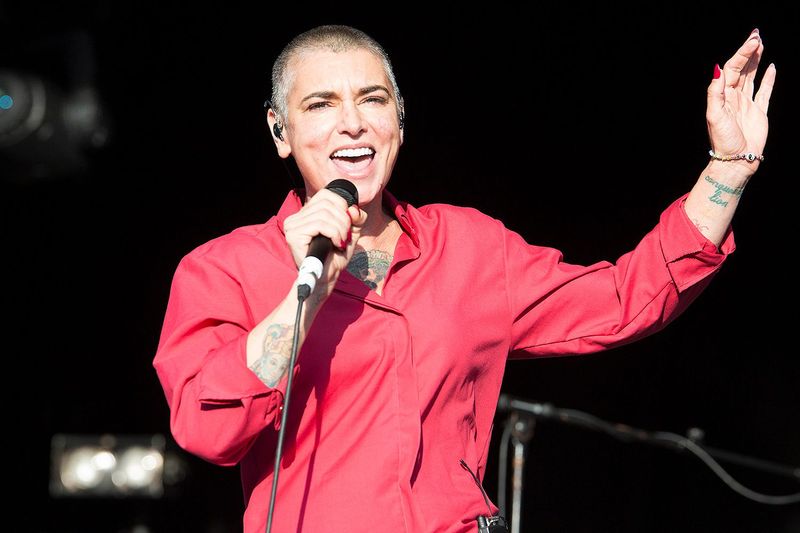
Sinéad O’Connor’s haunting voice and bold artistic choices might feel like part of American alternative culture, but her roots lie firmly in Dublin, Ireland. Her upbringing in a turbulent environment shaped the emotional intensity that made her music so compelling and unforgettable.
Her breakout hit, “Nothing Compares 2 U,” resonated with global audiences, including those in the U.S., who were drawn to her raw vulnerability and fearless authenticity. She wasn’t afraid to confront uncomfortable topics, and that honesty became one of her defining artistic traits.
Although many associate her with American media moments, O’Connor’s entire creative foundation was built on Irish storytelling, political awareness, and a deep understanding of human emotion. Her music carries a sense of place—one that’s unmistakably Irish, no matter how widely it traveled.
23. Enya
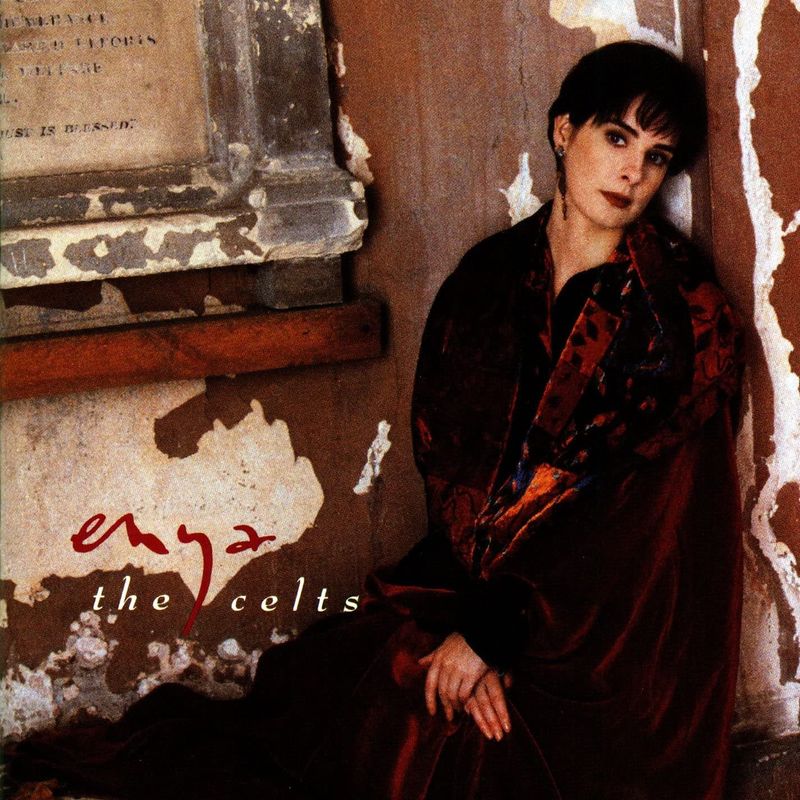
Soft, ethereal, and mesmerizing—Enya’s music often feels like it belongs in American movie soundtracks or meditation playlists. But she grew up in County Donegal, Ireland, surrounded by Celtic traditions and a musical family that heavily influenced her signature sound.
Her approach to music has always been uniquely her own, blending layered vocals, atmospheric arrangements, and a sense of otherworldliness rooted in Irish landscapes and folklore. That style made her stand out immediately, especially in the U.S., where listeners were drawn to her calming and cinematic sound.
Even though she’s a global icon with millions of fans in the States, her identity remains deeply connected to Ireland. Everything from her vocal phrasing to her haunting melodies reflects the culture she grew up in—one that continues to shape her timeless music.
24. Bjork

Few artists are as creatively bold as Björk, and her experimental style often makes people assume she must’ve come from an American arts hub like New York or Los Angeles. But she was born in Reykjavik and raised in Iceland, where the stark landscapes and vibrant creative community fueled her imagination.
Her music blends genres in ways that defy categorization—electronic, classical, avant-garde, and pop influences swirl together to create something unmistakably her own. That originality captivated American audiences who were looking for something new and visionary.
Even though she’s become a cultural icon in the U.S., Björk credits her Icelandic heritage for shaping her worldview. Her innovative spirit, emotional transparency, and artistic bravery reflect a culture that celebrates individuality and bold expression.
25. Avicii

Electronic music fans around the world—especially in the U.S.—embraced Avicii’s upbeat, melodic sound, leading many to assume he was American. But he grew up in Stockholm, Sweden, where he began producing music in his bedroom long before he became a global superstar.
His Scandinavian roots played a major role in shaping his artistic style. Sweden has a rich pop and electronic music culture, and Avicii blended those influences with his own inventiveness to create tracks that felt uplifting, emotional, and universally appealing.
Once he entered the American market, his songs exploded across radio stations and festivals. Fans connected with his hopeful lyrics and energetic beats, often forgetting he wasn’t from the States at all. His legacy remains deeply international, reflecting a talent that transcended borders.
26. ABBA
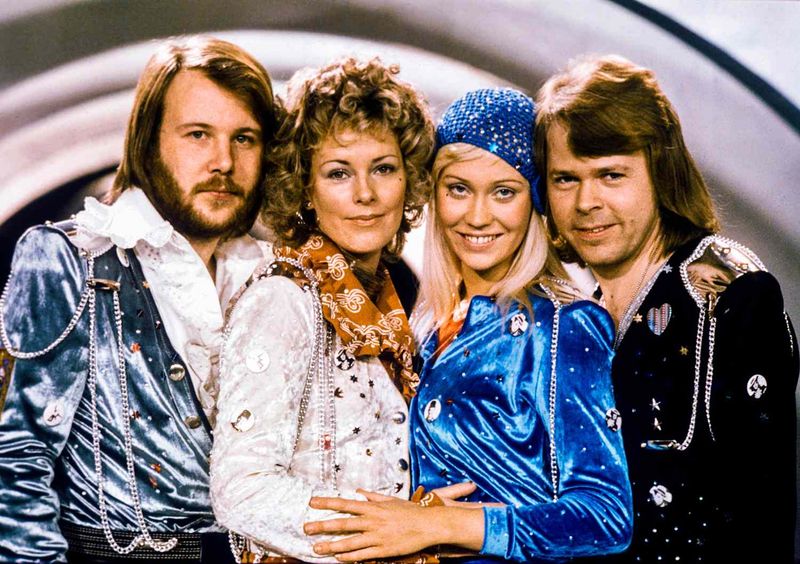
ABBA’s music became such a huge part of American pop culture that many listeners assume the group must have American origins. But all four members were born and raised in Sweden, where they first formed the band and developed the harmonies and melodies that would shape their iconic sound.
Their Eurovision win launched them into global fame, and the U.S. quickly embraced their upbeat rhythms, heartfelt lyrics, and sparkling production style. Their songs captured a carefree, joyful energy that resonated with American audiences who were hungry for something fresh and fun during the 1970s.
Even today, ABBA’s influence can be felt across American media—from movies and musicals to radio hits and TikTok trends. But their identity is unmistakably Swedish, rooted in the Scandinavian pop traditions that helped them create some of the most timeless songs in music history.
27. The Beatles
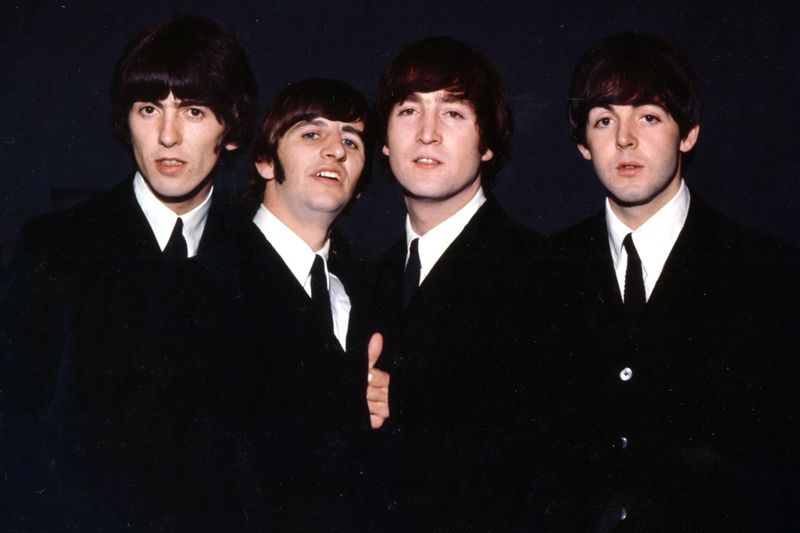
It might seem impossible that anyone could forget The Beatles aren’t American, but their impact on U.S. culture was so enormous that they became woven into the fabric of American music history. John, Paul, George, and Ringo all grew up in Liverpool, where Britain’s early rock scene shaped their sound and teenage dreams.
When they arrived in the U.S. during the British Invasion, their charm, wit, and musical talent took the country by storm. American fans connected instantly with their catchy melodies, inventive harmonies, and evolving artistic styles—so much so that the band felt like an adopted part of American youth culture.
Despite their deep ties to the U.S., everything about The Beatles—from their humor to their musical sensibilities—was shaped by their English upbringing. Their global influence simply blurred the borders, making them feel like they belonged everywhere at once.
28. The Bee Gees
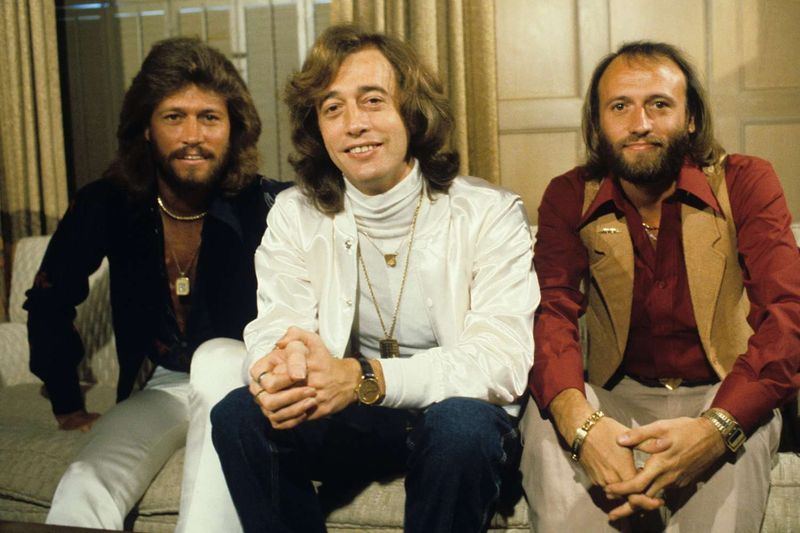
Disco lovers in the U.S. often think the Bee Gees must’ve been American, especially since they dominated American charts and became the voices of an entire era. But the group’s story actually begins on the Isle of Man before the Gibb family moved to Australia, where the brothers first launched their music careers.
Their early experiences in Australia helped them develop the tight harmonies that would later define their sound. When they eventually returned to the UK and then broke into the American market, they brought with them a blend of pop, rock, and soul that felt exciting and new.
Once “Saturday Night Fever” hit, the U.S. embraced them as disco royalty. But their international upbringing—British roots, Aussie development—was what gave them the unique musical identity that made them legends.
29. Tom Jones
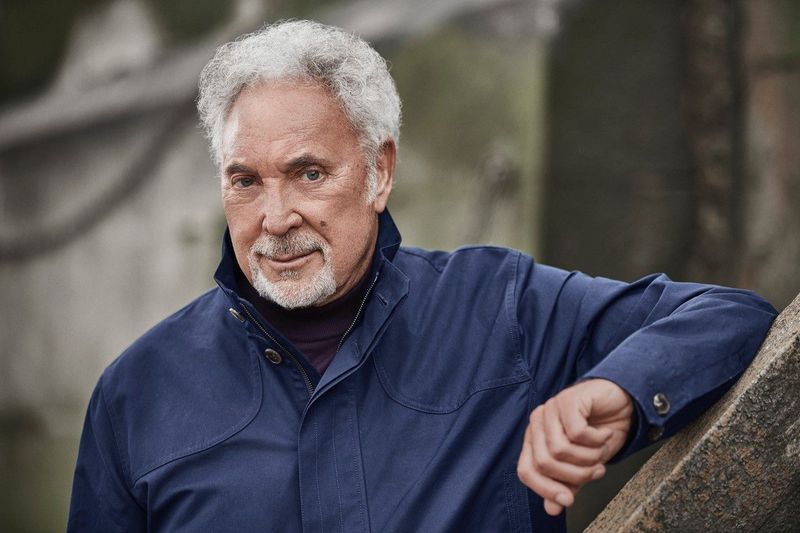
Tom Jones’ powerful voice and charismatic stage presence often lead people to believe he’s American, especially since his music fits so naturally into U.S. soul and pop playlists. But he was born in Pontypridd, Wales, where he grew up surrounded by local musical traditions and a culture that values emotional, expressive singing.
His vocals carried a rich, deep sound that stood out immediately. That natural talent, combined with his energetic performances, made him an international sensation who crossed easily into the American market. Fans in the U.S. embraced him wholeheartedly, turning his music into radio staples.
Despite decades of American success, Jones has always remained proud of his Welsh roots. His bold voice, warm personality, and heartfelt style all trace back to the culture that raised him—one that shaped his artistry long before American fame arrived.
30. George Michael
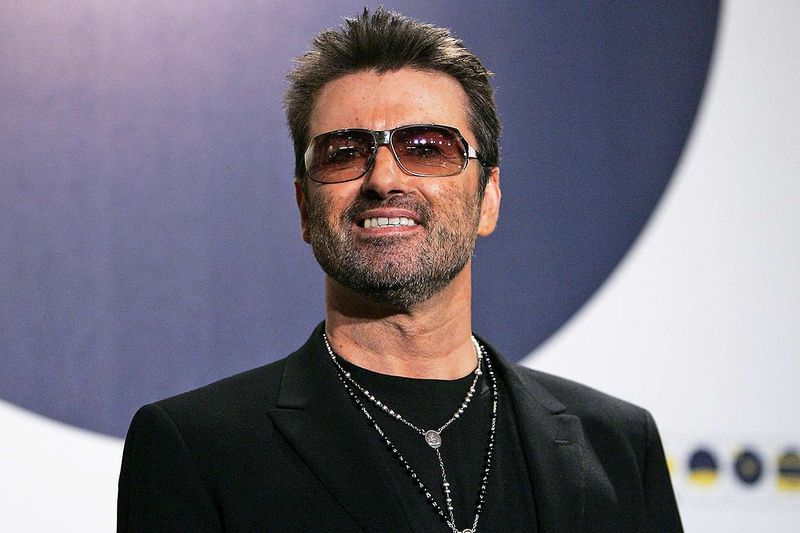
American fans sometimes forget that George Michael wasn’t from the U.S., especially since his music dominated American charts throughout the ’80s and ’90s. But he grew up in London, raised by a British mother and Greek-Cypriot father whose backgrounds strongly influenced his identity and artistry.
His rise began with Wham!, a duo that crafted bright, catchy pop songs that resonated with audiences everywhere. When he transitioned into a solo career, his music took on deeper themes—love, vulnerability, and self-reflection—that connected strongly with American listeners.
Even though he became a beloved figure in U.S. pop culture, his voice, style, and songwriting carried a distinctly British touch. His global appeal came from blending American musical influences with his own European perspective, creating a sound that felt both familiar and refreshingly unique.

Comments
Loading…